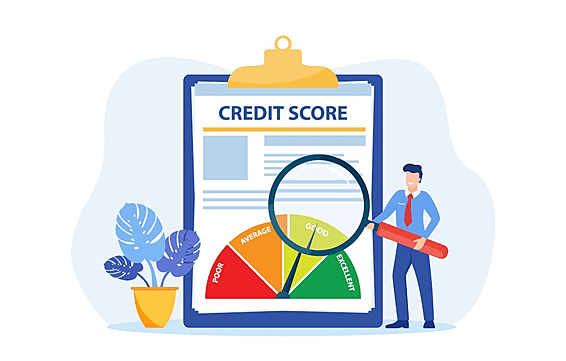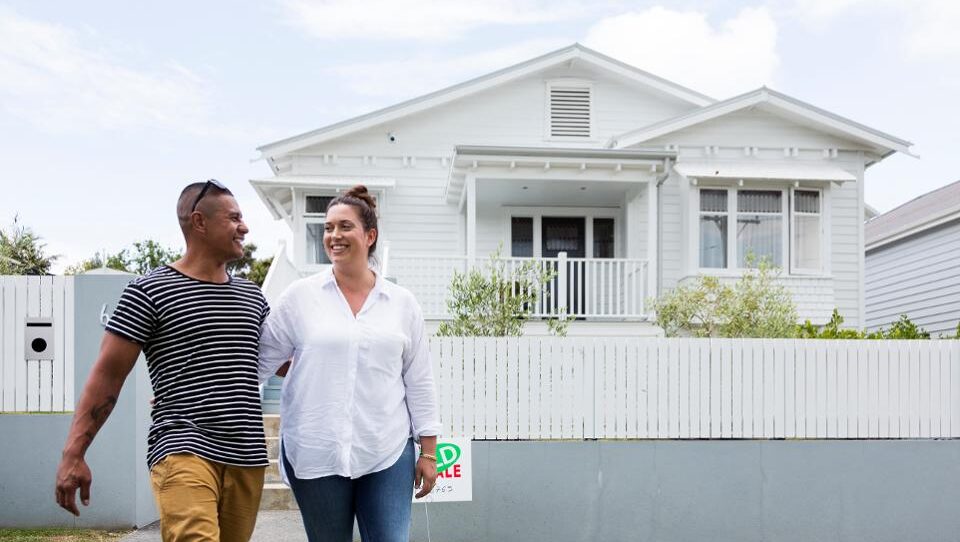Don’t know how and where to get a mortgage for a house? Though buying your own house is one of the best feelings in this world, but expensive as well. It’s not less than an achievement. Let us tell you that the whole buying process is nerve-wracking, especially if you are a first-time buyer.
But, there is nothing to be afraid of! It’s important to know every single detail before you start the mortgage process.
Invest some time in our step-by-step guide to get more organized, and controlled, and know what to expect in your budget and income.
Let’s explore what it takes to get a mortgage that you can easily repay!
Don’t have any idea about the mortgage process?
Don’t worry! The best method to save your time & effort is to understand the mortgage lending process to get the best possible loan. It includes
- What lenders are looking for?
- The Paperwork involved.
- To Identify the right property.
- How to complete the mortgage process?
Both consumers and mortgage lenders have to follow the new consumer protection laws and government guidelines. Lenders need to examine whether or not valid buyers qualify for the loan. There are several paperwork & verification requirements from Credit score, Down Payment, Income details, debt-to-income ratio, and whatnot. It’s not less than climbing a mountain.
Whereas consumers should be responsible and perform extensive research on loan types, repayment time frame, and the right institution to get the loan. You must be aware of the property prices, already touching the sky. And, if you are looking to buy a house now, then for sure it’s going to give you a lot of profit in the future. So you need to be patient as buying a home on loan is a time-consuming process.
To make you understand, we have discussed all these factors step by step in detail. Keep reading!
Important Factors Considered by Mortgage Lenders:
When you apply for a loan, mortgage lenders have to look at various documents for verification. Though it’s fair to assess whether or not the buyer is capable of repaying the loan. Here are some key factors considered by mortgage lenders:
- Income
- employment history
- Credit score
- Debt-to-income ratio
- Assets
- Type of property
Income And Job History

Income is the first and most important factor looked upon by mortgage lenders when you apply for a loan. They don’t need to know whether or not you have a steady cash flow to repay your loan.
The good news is there is no specific amount that you should earn to buy a home. The lender only considers your employment history, monthly expenses, alimony payments(if any), payment for child support, etc.
Credit Score
The credit score is another essential factor that reflects financial status. Thus making it easier for mortgage lenders to accept or reject your loan application.
Though credit score is not the only deciding factor. More the credit score, the more the chance to get approved for a mortgage.
A high credit score reveals you pay your debts on time, and have a clear credit record. Whereas a low credit score indicates appliers’ mismanagement and lending money to borrowers can be riskier.
The minimum credit score varies for different types of loans. For example:
- For conventional loans is usually 620.
- For a government-backed loan, is 580
With a higher credit score, you have better loan options to choose from. The additional benefit is a low rate of interest. Whereas the loan options get limited and the Interest rate gets higher for borrowers with a low credit score.
Debt-To-Income Ratio (DTI)
The debt-to-income ratio (DTI) is obtained by dividing your monthly debt payments by your gross monthly income. It reveals you have the required cash flow in your account. Like your income & credit score, a high debt-to-income ratio helps lenders easily approve your mortgage application.
While calculating monthly debts, all the payments like student loan, credit card statements, student loans, and auto loans are included. Whereas day-to-day expenses that are not fixed like Netflix subscription, groceries, shopping, etc. aren’t required to be included while calculating DTI.
DTI can vary depending on the loan type and lender. The DTI for conventional loans can be 50% or less but is higher for government-approved loans.
Assets
Having assets like fixed deposits, property( if any), or saving accounts leaves a good impression on lenders. It shows your ability to pay the loan even if you get into some financial trouble.
Lenders are always interested to know if you have any assets. You can ask your mortgage lender to check your assets for immediate loan approval. Some of the best examples of assets are:
- Savings accounts
- Taxable investments
- Retirement accounts
Type of Property:
Property type (commercial, mobile, residential, manufactured, etc.) also decides the type of loan you qualify for. As the risk level for the lender depends on your budget and the size of the property.
For example, if you are planning to buy a home for a single-family or primary residence. The loan terms are easy and the risk factor is low for lenders. As most people can easily afford the primary house costs and can pay the monthly installments. The best part about primary properties is they allow you to buy a home with just a 3% down payment. Isn’t that great?
The second scenario is to get a mortgage on Investment properties. Well, the mortgage process for such properties is complex as the risk factor is quite high. So, to balance the risk factor, the borrower needs to have a high credit score plus the size of a down payment should be large which is fair enough.
The Documents you need to Get A Mortgage:
To buy a home, your lender is proving thousands of dollars to you. They can ask for some specific documents for the underwriting process and to ensure you can repay the loan. To speed up the loan process, make sure you already have the following documents with you.
- Bank statements
- Brokerage statements
- Assets and debts documents
- Documents for gift-money
- Identification
- Proof of income
- Previous years’ tax returns
- Proof of employment and employment history
- Rental history
Income Proof:
It’s essential to provide proof of your income. So the lender can verify the amount and source of current income. So, you need to submit multiple documents including:
- federal tax forms (Minimum 2 years)
- Two latest W-2s and pay stubs.
- 1099 forms/profit and loss statements for self-employed borrowers.
- Divorce decrees/child support decisions or other legal documents that prove you’ll receive income for at least the next 3 years.
- Legal documents( if applicable) that prove you’ve already received child support, alimony, or any such income for at least the past 6 months.
Credit Documentation:

Lenders can view your credit score report only upon your approval. So you need to allow them
verbal or in writing to view your credit report. Lenders will then check your credit history and verify for any negative factors such as:
- Bankruptcy
- Not paying bills on time
- Foreclosure etc.
Unfortunately, if they find any such mismanagement, it will probably lessen your chance to get a mortgage. In case, you have any solid reasons for bad credit history, you can explain and convince your lender with documented proof.
Let’s say, you had a medical emergency or lost your job, and couldn’t pay the monthly installment of your credit card. Then, you can provide the lender with a copy of medical bills, etc. to prove it’s a matter of instance and not a pattern. Rest it is up to the lender to decide whether to approve or reject the mortgage application.
Proof Of Assets And Liabilities
As we already told you, having assets easily influences the mortgage lender to approve your loan. To make sure, the lender may ask you to verify the assets by providing the following documents:
- Account statements( checking & saving) of at least 60 days.
- The last & latest statement from your investment or retirement account.
- Documents of the assets you sold before applying for the mortgage. For example, you can provide the title copy of the car you sold recently.
Documents of gift funds deposited into your savings account within the last two months.
To make the loan process smoother, make sure to cooperate with the lender. So, kindly submit the requested information and proof documents of all the assets, and debts you owe like an auto loan or student loan.
Know which is the right mortgage for you?
Several home loan options are available that you must know before getting a mortgage. So, always consider your location priorities and financial situation to identify the right mortgage for you. Check below some of the most popular home loan options:
- Conventional loans: These loans aren’t backed by the government and come with strict loan terms & conditions. An ideal option for borrowers with a high credit score.
- FHA loans: Such loans are backed by the Federal Housing Administration, and don’t have any special requirements. You can even use the gift money for the down payment.
- VA loans: Only veterans or active service members can apply for VA loans supported by the Department of Veterans Affairs. The best part is the zero down payment requirement.
- USDA loans: Also referred to as zero-down-payment home loans are offered by the U.S. Department of Agriculture for people living in rural areas and those with low-income sources.
- Jumbo loans: They are a kind of conventional loan meant for properties exceeding the conforming loan limits.
The next step is to identify whether you want to opt for Fixed rate mortgages or Adjustable Rate Mortgages. Generally, borrowers prefer fixed-rate plans.
How To Get A Mortgage?

Done with all the paperwork required to apply for a mortgage? Make sure you have a good credit score to get qualified for a mortgage immediately. Now is the time to learn about the mortgage process i.e. how to get a mortgage. Let’s start!
Step 1: Get Pre-Approved For the Mortgage
The first step is to apply and get pre-approved by the lender. In the preapproval process, you’ll get to know the final amount and interest rate you can expect from the lender. To pre-approve your loan application, the lender considers your:
- Income
- Assets
- Credit
- Type of property you want to buy
All these factors help them determine the interest rate and the loan amount you are worthy of. So, it makes you more convincing among real estate agents and sellers.
Please Note: Preapproval and Prequalified both are different terms. Pre-approval is the first step toward your loan approval and gives you a final idea about the loan amount & rate of interest. You need to submit documents to prove that you are eligible for a mortgage.
Whereas prequalifications are merely an assumption and don’t require any asset verification. They don’t give you an exact idea of the final loan amount.
Check Your Credit Score
In this entire process, you are answerable to many questions to assure the lender that you can repay the loan amount. So, you have to allow the lender to verify your credit report. It shows your debts and credit history from other lenders in the past, credit card companies, banks you are associated with, and others.
Personalized Mortgage Solutions ( provided by the lender)
The next step after verification of documents and credit score, the lender will tell you how much you qualify for. They will offer some mortgage solutions depending on their assessment. The borrowers can convince the lender to customize the mortgage such as compensation in taxes, flexibility in monthly payments, down payment, and rate of Interest, or monthly payments.
Step 2: Get Your Approval Letter
After you have been pre-approved by your lender, you can ask them for the approval letter. So, you can start seeking a real estate agent for buying your primary home.
To make the mortgage process even smoother, you can contact the home loan expert and opt for a verified approval.
Step 3: Find the Right Property And Make An Offer

Buying their own house is a dream of many people that they are not able to fulfill in their lifetime. Feel blessed that you are soon to get your own house. Moving on, the next step is to start hunting for properties and find the right home.
So, connect with a reputed real estate agent in the area you want to buy the property. They will make things a lot easier for you and will help to find properties that suit your budget and requirements. Basically, they will narrow down your search. Thus saving your time & effort.
If you agree to any of the shown properties, the real estate agents will make an offer and will try their best to negotiate with the seller. Fortunately, if the owner accepted the offer, you can continue with the final paperwork of the home-buying process.
Step 4: Verifying Your Details
Verification is essential from both ends. To examine your assets and finances, an underwriter will dig a little deeper to know every single detail. It also includes the paperwork, proofs, and documentation submitted by you at the time of applying for the loan.
On the other side, the mortgage lender will also keep an eye on and cross-examine the property details. Generally, it includes:
- Appraisal Order
- Verifying the home’s title
- Scheduling state-required inspections.
Once the whole underwriting process is done, you’ll be provided with a Closing Disclosure. It explains every single detail about loan terms & conditions including
- Interest rate
- Down payment
- Monthly payment,
- Closing costs.
Please Note: A loan estimate is provided by the lender usually after three days of the loan application. do check whether or not your Closing Disclosure matches your Loan Estimate.
Step 5: Closing Meeting
It’s the final stage after your loan approval. A closing meeting is organized by the real estate agent that includes:
- You & the homeowner
- Attorney of both parties
- A title company representative
- The lender.
- The seller and the seller’s agent.
Keep in mind that you also have to pay closing costs. But you can request the lender for compensation or negotiation. So, you can ask them any last-minute queries or doubts regarding the property and loan. At this time, you need to bring:
- The Closing Disclosure
- Valid photo ID proof
- down payment Proof
- A Check for paying closing costs.
That’s it! Congratulations on becoming an official homeowner.
Frequently Asked Questions:
How to increase my chances of getting a mortgage?
Maintain a good credit history, cash flow, and low DTI, and if possible try to pay the larger down payment. It will also help you get a low-interest rate.
Which is the best loan type for first-time buyers?
Fortunately, first-time home buyers have the advantage of low credit scores & down payment requirements. Many U.S. states & cities have special loan programs for first-time home buyers.
What is the minimum credit score requirement for a home loan?
Generally, the minimum credit score you require for a conventional loan is 620 and above.
Summing up: The outline to get a mortgage
We have clearly stated all the factors considered by lenders to approve your mortgage application. It includes your employment record, income, assets, and others. The sooner, the better. Make sure to complete the paperwork and verification as soon as possible to get pre-approved, and get an idea of the principal loan amount. So, you can start hunting for your right home. Generally hiring a real estate agent makes the process quick, smooth, and easy. They can help you find a home within your budget and can even negotiate with the seller on your behalf.
If the seller has agreed to the offer, all you need to do is to get full approval from the lender followed by the underwriting process and a closing meeting. Finally, you become the homeowner by paying the down payment, closing costs, and signing the closing documents.
Don’t fret! Even if you are denied a mortgage. Know the reasons, improve your credit score, and try in the future.
Need any assistance? Get approved for a loan today with USM Corporation!
Related Post:





